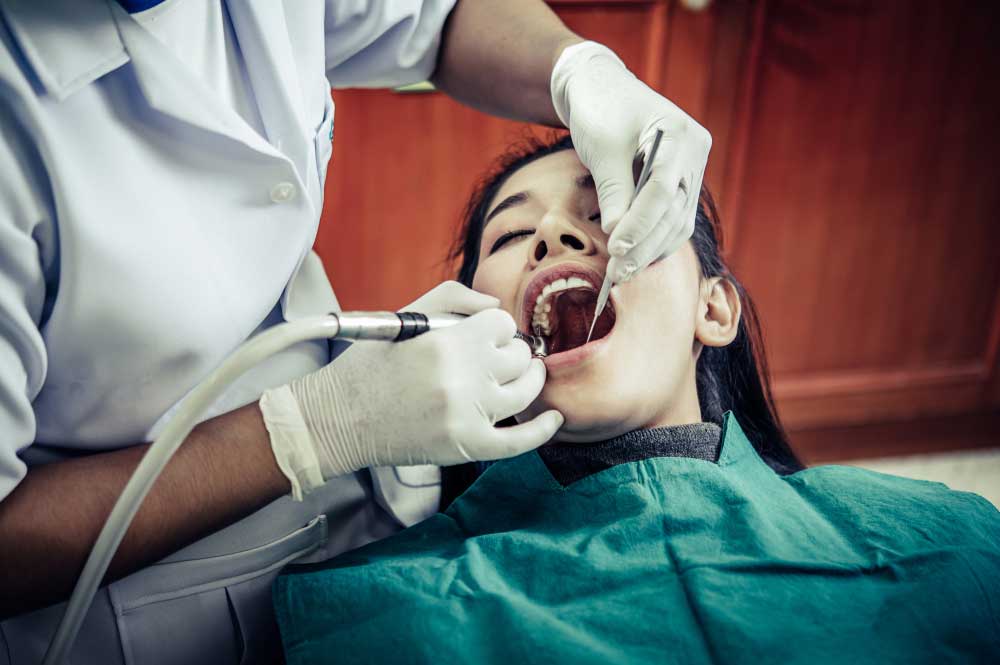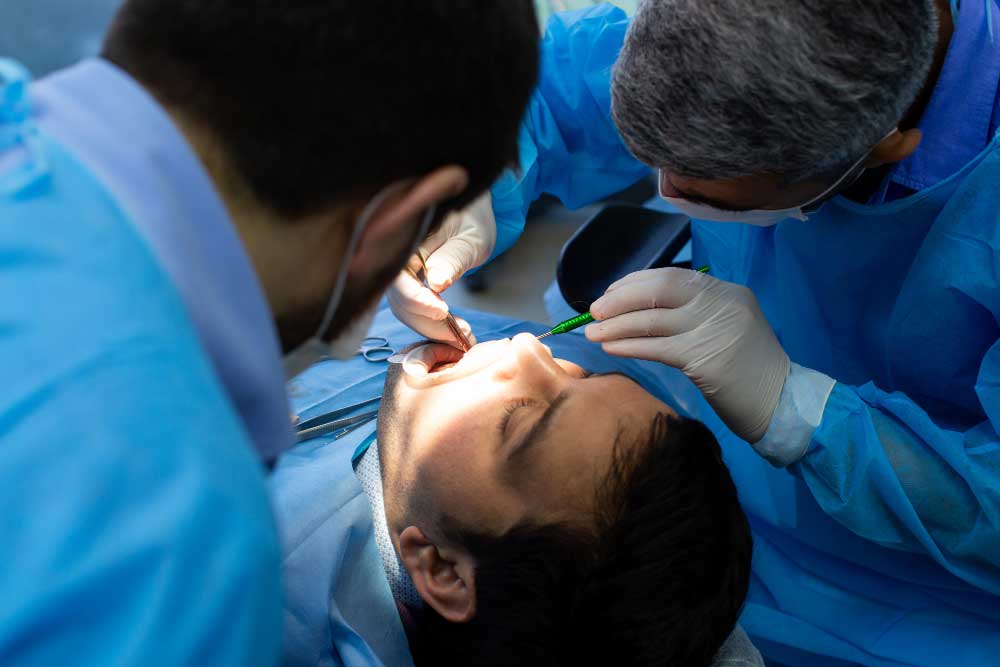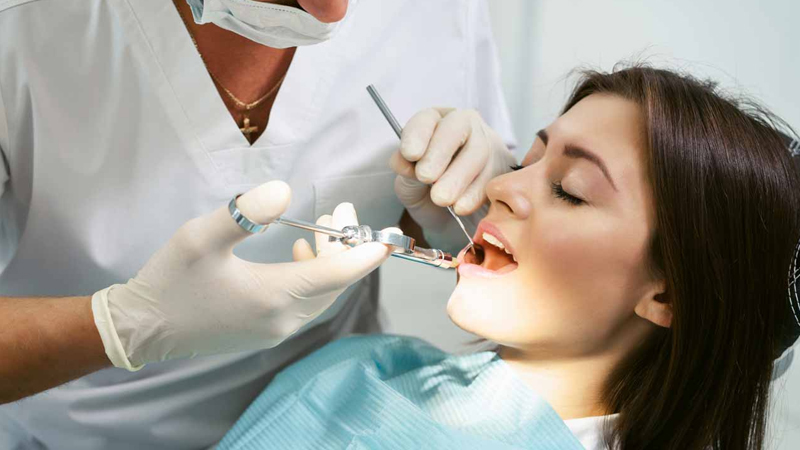Table of Contents
ToggleWisdom teeth removal is a common dental procedure that many individuals undergo in their late teens or early adulthood. While the surgery itself is relatively straightforward, one of the most pressing questions patients have is, “How long does it take to recover from wisdom teeth removal?” Understanding the recovery process can help alleviate anxiety and prepare you for the days following your surgery.
The Immediate Post-Operative Phase
Following wisdom teeth removal, the first 24 to 48 hours are critical for recovery. During this time, it’s essential to follow your dentist’s aftercare instructions closely. Here’s what you can generally expect:
- Bleeding: It’s normal to experience some bleeding immediately after the procedure. You’ll likely be given gauze to bite down on, which should be changed as needed. This bleeding typically subsides within a few hours.
- Pain and Swelling: As the anaesthesia wears off, you may begin to feel discomfort and notice swelling around your cheeks and jaw. Over-the-counter pain medications or prescribed pain relievers can help manage this pain.
- Dietary Restrictions: For the first couple of days, stick to soft foods and liquids. Avoid hard, chewy, or spicy foods that could irritate the surgical site.
Days 3 to 7: The Healing Process
After the initial 48 hours, you will begin to notice improvements in your condition, but full recovery can still take time. Here’s a breakdown of what to expect during this period:
- Reduced Pain and Swelling: By the third day, most patients experience a significant reduction in pain and swelling. However, some swelling may persist for up to a week.
- Gradual Return to Normal Activities: Most people can return to work or school within a few days, but it’s crucial to listen to your body. If you feel fatigued or in pain, take additional time off to rest.
- Diet Adjustments: As your healing progresses, you can start to reintroduce more solid foods. However, it’s wise to avoid anything crunchy or hard until your dentist advises otherwise.
The First Week to Two Weeks
After one week, most patients will experience a noticeable improvement in their wisdom teeth removal recovery. Here’s what you can expect:
- Follow-Up Appointment: A follow-up appointment may be scheduled to ensure that healing is progressing as expected. Your dentist will check the surgical sites and may remove any stitches if necessary.
- Ongoing Discomfort: While major pain should subside, it’s normal to have some discomfort or soreness in the days following the surgery. Continue to manage any pain with prescribed or over-the-counter medications.
- Full Recovery Timeline: Generally, the recovery period spans from one week to ten days for most individuals. However, full healing of the gum tissue can take a few weeks.
Factors Influencing Recovery Time
Several factors can influence how quickly you recover from wisdom teeth removal:
- Age: Younger patients often heal faster than older individuals. If you are in your late teens or early twenties, you may find that your recovery is quicker.
- Complexity of the Extraction: If your wisdom teeth were impacted or required surgical removal, the recovery might take longer than for teeth that erupted normally.
- Overall Health: Individuals with underlying health conditions or weakened immune systems may experience longer recovery times.
- Adherence to Aftercare Instructions: Following your dentist’s post-operative care instructions can significantly impact your healing process. This includes managing pain, keeping the surgical area clean, and attending follow-up appointments.
Cost Considerations for Wisdom Teeth Removal
When planning for wisdom teeth removal, understanding the associated costs is crucial. The wisdom teeth removal cost can vary based on factors such as:
- Location: Prices may differ based on where you live. Searching for “wisdom teeth removal near me” can help you find local clinics with competitive pricing.
- Complexity of the Procedure: Simple extractions are typically less expensive than surgical removals.
- Sedation Options: The type of anaesthesia used can also influence the overall price.
In Sydney, for example, the wisdom teeth removal price generally includes pre-operative consultations, the procedure itself, and any necessary follow-up care.
Wrapping Up:
Recovering from wisdom teeth removal can take anywhere from a few days to a couple of weeks, depending on various factors. By understanding the recovery timeline and following your dentist’s recommendations, you can ensure a smoother healing process. If you’re considering wisdom teeth removal, consult with your dental professional to discuss your options and get a clear estimate of the wisdom teeth removal cost. Whether you’re searching for “wisdom teeth removal near me” or looking for expert advice, it’s essential to prioritize your oral health for a comfortable and efficient recovery.
Frequently Asked Questions:
1. How long does the swelling last after wisdom teeth removal?
Swelling is most pronounced in the first 48 hours following the surgery and typically peaks around the third day. After this point, the swelling should gradually subside. Most patients find that the swelling significantly decreases within a week, but some residual swelling may last up to two weeks, especially if the extraction was more complex.
2. What are the signs of complications during recovery?
While some discomfort is normal after wisdom teeth removal, watch for signs that may indicate complications. These include:
- Increased pain or swelling that worsens rather than improves.
- Fever or chills, which could indicate infection.
- Excessive bleeding that doesn’t stop after applying gauze.
- Unpleasant taste or odour in the mouth, which may suggest an infection. If you experience any of these symptoms, contact your dentist immediately.
3. How can I manage pain effectively during recovery?
Managing pain effectively is crucial for a smooth recovery. Here are some tips:
- Medication: Take prescribed pain medications as directed. Over-the-counter pain relievers like ibuprofen or acetaminophen can also help.
- Cold Compresses: Apply a cold compress to the outside of your cheek for 15-20 minutes at a time to reduce swelling and numb pain.
- Rest: Ensure you get plenty of rest to help your body heal. Avoid strenuous activities for at least a few days after surgery.
4. When can I return to normal activities after the procedure?
Most patients can return to light activities within a few days after surgery. However, it’s advisable to avoid rigorous exercise and heavy lifting for at least a week or until your dentist gives you the green light. Listen to your body and don’t push yourself too hard.
5. Can I smoke or use tobacco products after wisdom teeth removal?
It is highly recommended to avoid smoking and using tobacco products for at least 48 to 72 hours post-surgery. Smoking can hinder the healing process and increase the risk of complications, such as dry socket, which is extremely painful and prolongs recovery time.
6. What can I eat during my recovery?
Stick to soft foods for the first few days post-surgery. Foods such as yogurt, applesauce, smoothies, mashed potatoes, and broth are excellent options. Gradually reintroduce more solid foods as your pain decreases and you feel comfortable.
7. How can I promote faster healing?
To promote faster healing after wisdom teeth removal, consider the following tips:
- Stay Hydrated: Drink plenty of fluids to keep your body hydrated, but avoid using straws for the first few days, as suction can dislodge the blood clot and lead to dry socket.
- Follow Oral Hygiene Practices: After the first 24 hours, gently rinse your mouth with warm salt water to help keep the extraction site clean. Avoid brushing directly on the extraction site until it has healed.




